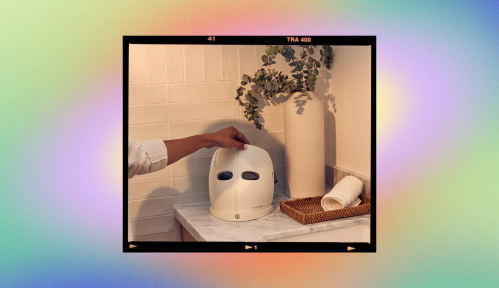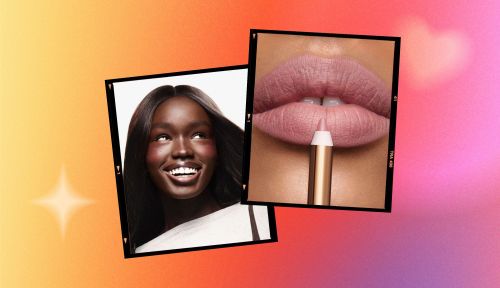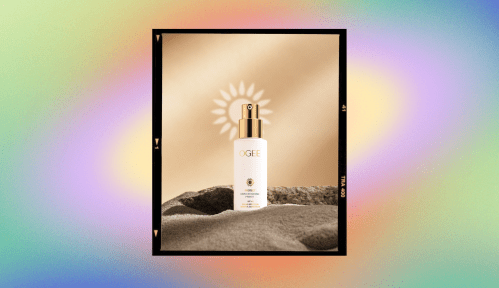Our editors independently select these products. Making a purchase through our links may earn Well+Good a commission
Thermal Spring Water Is the Secret Ingredient in * So * Many French Skin-Care Products—Here’s What Derms Have To Say About Its Skin-Soothing Benefits
Thermal water skin care is a mainstay in French beauty. Here's what dermatologists have to say about its benefits.
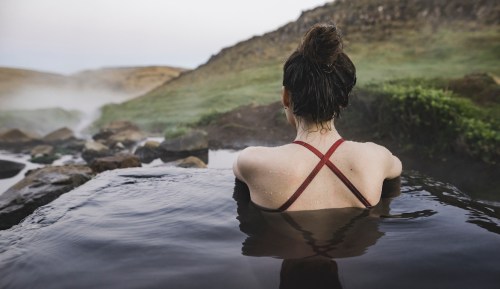
In ancient Rome, locals regularly bathed in hot springs as a way of harnessing the skin-healing properties of thermal water. These days, that same stuff has been bottled up into some of your favorite skin-care SKUs, giving anyone with access to a drugstore the ability to reap its benefits.
Experts in This Article
director of cosmetic and clinical research in dermatology and associate professor of dermatology at Mount Sinai Hospital
Long been considered a “miracle” treatment for sensitive skin and inflammation, thermal water’s soothing applications can be a game-changer for those dealing with irritation. But considering skin-care technology has (understandably) improved over the last few thousand years, does it still stack up as a sensitive skin treatment? Keep reading for what dermatologists have to say about adding it to your routine.
What is thermal water?
Though thermal water is technically just…water, the way its sourced enhances it with vitamins and minerals that can help treat (and in some cases, even cure) diseased skin. “Thermal waters come from within the earth’s core, and each thermal water has a unique fingerprint,” says Tyler Steel, the Vice President of media relations at La Roche Posay. “As the water travels through layers of earth and rock, the waters collect nutrients and minerals that can provide anti-inflammatory, antioxidant, and other health-providing properties that can benefit multiple skin types and conditions.”
According to Rachel Maiman, MD a board-certified dermatologist at Marmur Medical in New York City, as the water rises to reach the spring, it passes through rocks and soil and picks up minerals along the way. “The most common soluble minerals found in thermal water are calcium, bicarbonate, silicates, iron compounds, sodium and magnesium salts, sulfur compounds, and metals, along with trace elements like selenium,” she says.
The benefits of thermal water
“Thermal spring water contains elements that provide anti-inflammatory, soothing, and even probiotic benefits,” says Joshua Zeichner, MD, a board-certified dermatologist and director of cosmetic and clinical research at Mount Sinai hospital, meaning that the ingredient can be great for building up the strength of your skin barrier.
However, the benefits of thermal water directly correspond to the type of minerals it contains—which can differ depending on where it’s sourced. “For instance, sulfur is abundantly found in most thermal water, which has antimicrobial and anti-inflammatory effects,” says Dr. Maiman, “Many of the minerals in thermal water also appear to have antioxidant properties that some studies suggest help neutralize free radicals and reduce inflammation.”
The thermal water used in La Roche-Posay’s skin-care lineup, for example, is rich in both selenium and strontium, which Steel says has been shown to help treat psoriasis and atopic dermatitis. That same water is used at the brand’s partner dermatology center in France, where patients spend three weeks bathing in hot springs. On a recent trip to the thermal center, our senior beauty editor met patients with severe eczema and burn scarring who experienced life-changing results from their treatments.
Ultimately, Dr. Maiman thinks thermal water is worth a try, especially for anyone dealing with eczema or psoriasis. “The existing data suggests that those with these conditions may derive some benefit,” she says. However, she notes that much of the research surrounding thermal water has been conducted by brands that use it in their products, which “may present some bias.” And while this doesn’t necessarily tarnish the findings, it does mean that more studies may be needed to confirm the ingredient is all it’s cracked up to be.
And though thermal water is a great, non-irritating option for sensitive complexions, Dr. Maiman stresses that it doesn’t replace a prescription from a dermatologist when it comes to treating more severe skin conditions.
Shop thermal water skin care
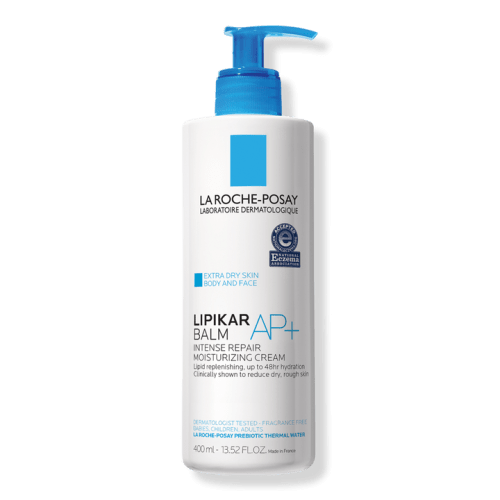
La Roche-Posay Lipikar AP+M Triple Repair Body Moisturizer — $21.00
This ultra-gentle lotion contains soothing thermal water from La Roche Posay, France (the same stuff that’s used in the brand’s treatment center), as well as skin-soothing niacinamide, barrier-strengthening ceramides, and moisturizing shea butter. Use it on your face and body for a well-nourished complexion from head to toe.
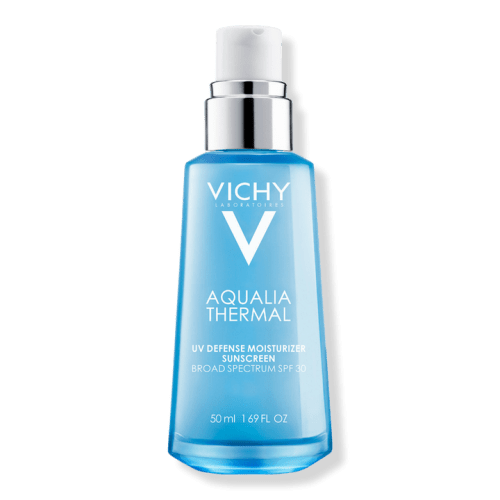
Vichy Aqualia Thermal UV Defense Moisturizer Sunscreen SPF 30 — $32.00
Enriched by French volcanoes, Vichy’s thermal water is infused with 15 different minerals that give it barrier-strengthening abilities. The brand boosted its signature ingredient with SPF 30 protection, and this formula will help you combine your moisturizer and sunscreen into a single step. Come for the hydration- and barrier-boosting benefits, but stay for the dreamy texture.
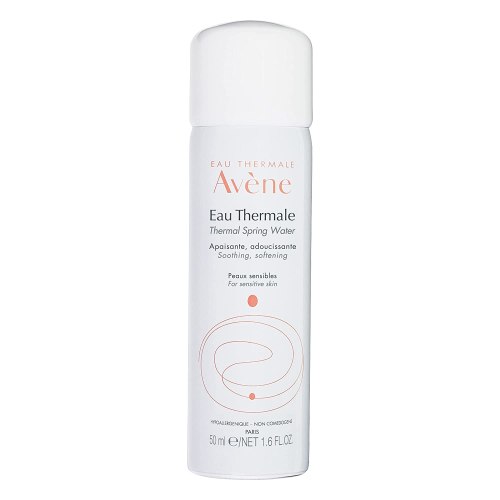
Avéne Thermal Spring Water — $10.00
Avéne’s thermal waters trickle down France’s Cévennes Mountains, picking up skin-soothing minerals along the way. Spritz this stuff onto a clean complexion to help calm redness, or use it throughout the day to set your makeup.

Blue Lagoon+ Eye Serum With BL+ Complex — $180.00
A few thousand miles from France, this serum’s thermal water is sourced from Iceland’s Blue Lagoon (which you may recognize from some seriously dreamy Instagram photos). Because of the lagoon’s proximity to lava, the geothermal seawater is packed with sulfur, silica, blue algae, and other minerals that give this formula its firming, hydrating, and brightening properties.
Sign up for the Well+Good SHOP Newsletter
Get exclusive deals on wellness, beauty, fitness, and food products that have been hand-picked by our editors.
Got it, you've been added to our email list.

